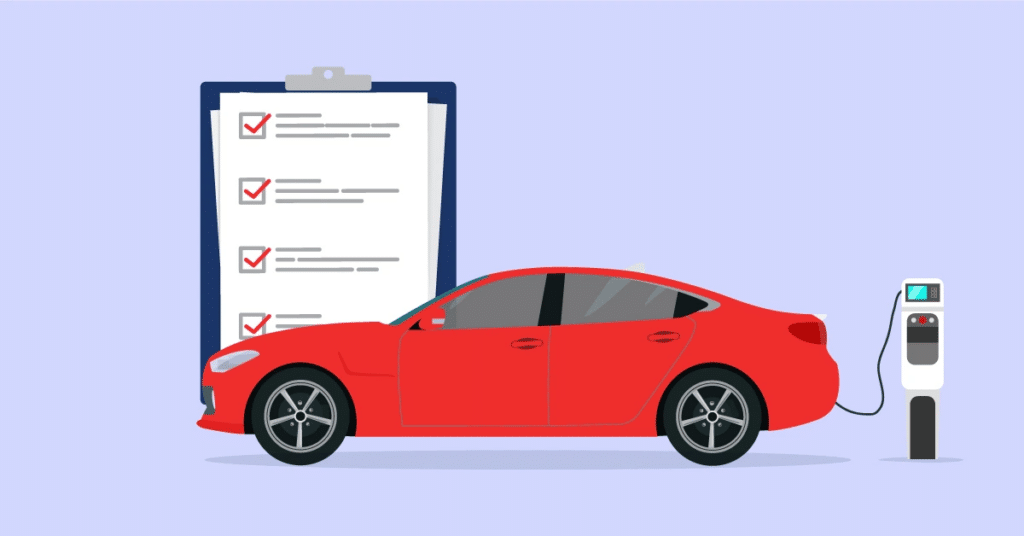Car insurance for electric vehicles

In a world swiftly moving towards sustainable transportation, electric vehicles (EVs) are gaining prominence. Consequently, the need for specialized insurance for these modern machines is crucial for owners. In this article, we'll explore the ins and outs of insurance for electric vehicles, shedding light on what owners should consider before signing a policy.
Understanding the nuances of electric vehicle insurance is not just important, it's essential for ensuring that your investment is protected. With different requirements and considerations than traditional car insurance, EV insurance can be a complex matter.
The Importance of Specialized Insurance for Electric Vehicles
Electric vehicles insurance isn't just a checkbox to tick off; it's a protective layer that differs in several ways from insuring a gasoline-powered car. From battery packs to electric drivetrains, EVs have unique components that can be expensive to repair or replace, making the right coverage essential.
Furthermore, because EVs rely on specific technology and parts, the insurance industry has adapted to cater to these needs. Policies may cover the high cost of battery packs, and insurers often consider the potential environmental benefits when designing coverage options.
However, more tech means more complexity, and in the event of an accident or breakdown, specialized knowledge is required for repairs. This can hike up prices, affecting your insurance premium.
It's not all about repairs, though. EVs are generally safer thanks to advanced driver-assistance systems (ADAS), which can help prevent accidents. Insurers may offer discounts for vehicles equipped with such technology, benefiting the safety-conscious EV owner.
Comparing Electric Vehicle Insurance to Traditional Policies
There are similarities between electric vehicles insurance and standard policies, such as coverage for liability, collision, and comprehensive. Yet, the primary difference lies in the cost to insure. While this is influenced by numerous factors, insuring EVs often comes at a premium.
Additionally, the environmental impact of electric vehicles could make them eligible for certain benefits or discounts from insurance companies. As an EV owner, it's advantageous to seek out these offerings.
Charging equipment also adds an extra layer to consider. Home charging stations could necessitate additional coverage, and it's critical to ensure your policy encompasses potential liabilities or damages resulting from charging your vehicle.
Factors Influencing Electric Vehicle Insurance Rates
Rates for electric vehicles insurance can be influenced by a range of factors, from the vehicle's make and model to the driver's history. High-performance EVs can be more costly to insure due to greater repair costs, while an excellent driving record can help lower premiums.
Location also plays a role, as urban areas with more traffic might see higher rates, while certain states or countries have different risk assessments for EVs. Also, the higher upfront cost of EVs compared to traditional cars can reflect in higher insurance rates due to the potential replacement cost.
Battery life is another big factor, with the replacement of an EV's battery being one of the most expensive potential costs. Policies that cover battery degradation can be a saving grace.
Lastly, annual mileage can affect your rate. The more you drive, the higher the risk of accidents, which is a standard consideration for any vehicle insurance.
Choosing the Right Policy for Your Electric Vehicle
When selecting a policy for your electric vehicle, it’s imperative to consider every aspect of owning an EV. This means finding an insurance provider that understands the uniqueness of these vehicles.
Don't hesitate to ask questions about the coverage details. It’s beneficial to know if your insurer provides roadside assistance specifically for EVs, or if they cover the cost of a battery replacement. Also, inquire about comprehensive coverage, which can protect against non-collision-related incidents.
Comparing quotes from multiple insurers can reveal the best rates and coverage options for your electric vehicle, so take the time to shop around.
Moreover, some insurance companies are aligned with the philosophy of sustainability and may offer special terms for EV owners. Keep an eye out for these providers, as they can often be more understanding of EV-specific issues.
Enhancements in EV Insurance as Technology Progresses
As technology within the EV sphere advances, insurance for electric vehicles will also evolve. Innovations such as improved battery life, autonomous driving capabilities, and increased adoption rates will likely influence insurance offerings and premiums.
Industry partnerships, such as those between car manufacturers and insurance companies, may also provide tailored insurance solutions with benefits for drivers and improved coverage options.
Continually developing technology calls for insurance providers to stay ahead of the curve to ensure EV owners are adequately covered for future advancements.
The Future of Electric Vehicle Insurance
The trajectory of electric vehicles is only going upwards, with battery technology making strides and governments pushing for cleaner transportation methods. This progress will inevitably lead to more tailored electric vehicles insurance policies and potentially more competitive pricing as the market grows.
As the public becomes more educated on EVs and their benefits over traditional vehicles, demand for comprehensive and affordable electric vehicle insurance will increase. This customer-driven demand will spur innovation within the insurance sector, fostering policies that are better suited to the evolving nature of EVs.
Ultimately, insurance for electric vehicles extends beyond traditional coverage. It requires an understanding of the unique aspects of EV ownership, such as the technology involved, the potential higher costs of repairs, and the availability of specialized services. As the landscape of personal transportation continues to shift towards electrification, so too will the intricacies of insuring these vehicles. For current and prospective EV owners, it is an exciting time to be part of an industry poised for innovation and growth, with the assurance that as their vehicles evolve, so will their insurance.

Related